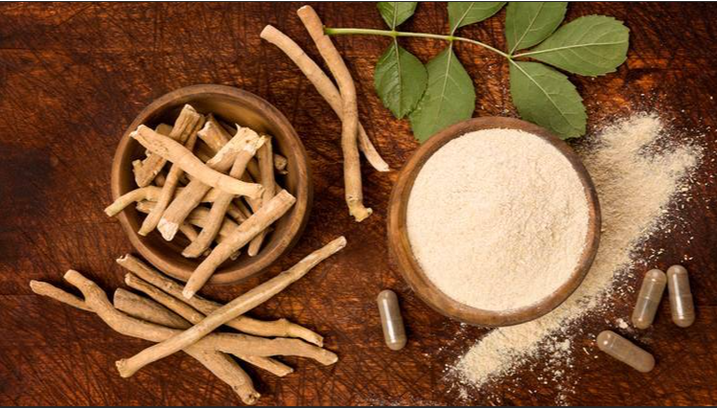
• What Are The Applications Of Ashwagandha In Disease Treatment ?
1.Alzheimer’s disease/Parkinson’s disease/Huntington’s disease/Anxiety disorder/Stress disorder
Alzheimer's disease, Parkinson's disease, and Huntington's disease are all neurodegenerative diseases. Studies have found that ashwagandha can improve immediate memory, general memory, logical memory, and verbal matching ability. There were also significant improvements in executive function, sustained attention, and information processing speed.
Studies have also found that ashwagandha can also improve limb manifestations such as tremor, bradykinesia, stiffness and spasticity.
In one study, ashwagandha significantly reduced serum cortisol, serum C-reactive protein, pulse rate, and blood pressure indicators, while serum DHEAS and hemoglobin significantly increased. The improvements in these indicators were consistent with the dosage of ashwagandha. dependencies. At the same time, it was also found that ashwagandha can improve blood lipids, blood pressure, and heart-related health biochemical indicators (LDL, HDL, TG, TC, etc.). No obvious side effects were found during the experiment, showing that Ashwagandha has relatively good human tolerance.
2.Insomnia
Neurodegenerative diseases are often accompanied by insomnia. Ashwagandha can effectively improve the sleep quality of insomnia patients. After taking ashwagandha for 5 weeks, sleep-related parameters have been significantly improved.
3.Anti-cancer
Most of the research on Ashwagandha's anti-cancer focus on the substance withaferin A. At present, it has been found that withanoin A has inhibitory effects on a variety of cancers (or cancer cells). Cancer-related research on ashwagandha includes: prostate cancer, human myeloid leukemia cells, breast cancer, lymphoid and myeloid leukemia cells, pancreatic cancer cells, glioblastoma multiforme, colorectal cancer cells, lung cancer, Oral cancer and liver cancer, among which in vitro experiments are mostly used.
4.Rheumatoid Arthritis
Ashwagandha extract has an inhibitory effect on a series of inflammatory factors, mainly TNF-α, and TNF-α inhibitors are also one of the therapeutic drugs for rheumatoid arthritis. Studies have found that ashwagandha has an inhibitory effect on the joints of the elderly. inflammation improvement effect. It can be used as an auxiliary medicine when treating bone and joints through traction to improve the therapeutic effect. Ashwagandha can also be combined with chondroitin sulfate to regulate the secretion of nitric oxide (NO) and glycosaminoglycans (GAGs) from knee joint cartilage, thereby protecting the joints.
5.Diabetes
Some studies have confirmed that ashwagandha can effectively restore blood sugar levels, hemoglobin (HbA1c), insulin, blood lipids, serum, and oxidative stress markers in patients with diabetes. There are no obvious safety issues during the use of ashwagandha.
6.Sexual Function And Fertility
Ashwagandha can improve male/female function, increase the concentration and activity of male sperm, increase testosterone, luteinizing hormone, and follicle-stimulating hormone, and has a positive effect on improving various oxidative markers and antioxidant markers.
7.Thyroid Function
Ashwagandha increases the body's T3/T4 hormone levels and can inhibit the thyroid stimulating hormone (TSH) raised by humans. Thyroid problems are more complex, including hyperthyroidism, hypothyroidism, thyroiditis, etc. Judging from some experimental data, it is recommended that patients with hyperthyroidism must not use supplements containing ashwagandha, but patients with hypothyroidism can use them. Because of the anti-inflammatory properties of ashwagandha, patients with thyroiditis are advised to follow the advice of their doctor.
8.Schizophrenia
A human clinical trial conducted a randomized, double-blind, placebo-controlled study of 68 people with DSM-IV-TR schizophrenia or schizoaffective disorder. According to the results of the PANSS table, the improvement in the ashwagandha group was very significant. of. And during the overall experimental process, there were no large and harmful side effects. During the entire experiment, the daily intake of ashwagandha was: 500mg/day ~ 2000mg/day.
9.Improve Exercise Endurance
Ashwagandha may improve cardiorespiratory endurance and post-exercise recovery in adults. Current experiments show that ashwagandha significantly enhances athletes' aerobic capacity, blood flow and physical exertion time. Therefore, ashwagandha is added to many sports-type functional drinks in the United States.
●NEWGREEN Supply Ashwagandha Extract Powder/Capsules/ Gummies


Post time: Nov-09-2024





